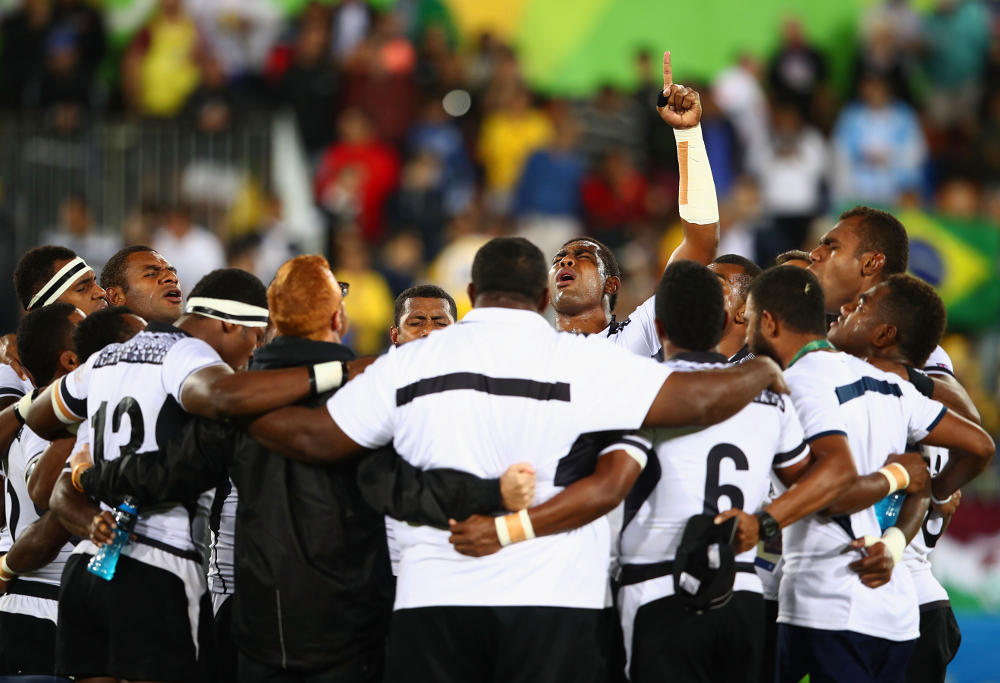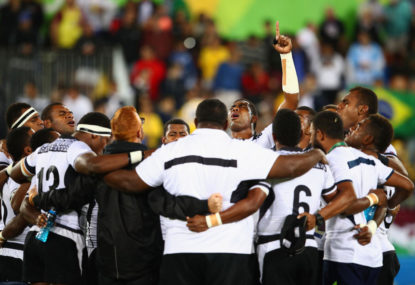Friday sees the start of the 2018 Rugby Sevens World Cup in San Francisco. It’s the seventh time the men’s tournament has been held, and the third time for the women’s.
A schedule adjustment following the debut of Sevens at the 2016 Rio Olympics means it is five years since the last World Cup in Moscow, where New Zealand won both titles.
After rugby was accepted into the Olympics, World Rugby considered ditching the sevens World Cup. The HSBC Sevens series is already made up of national sides, and the Commonwealth Games includes many of the top teams, so there are a number of competing international titles.
It has been kept in the calendar however. Not that you’d know that from the paucity of coverage the event has so far received.
There’s no doubt many rugby supporters are indifferent to the shorter code. As it has become more specialised, there is less overlap with fifteens, and many sevens stars are unknown, outside followers of the regular circuit.
San Francisco 2018 is also competing for attention while the World Cup Football and Wimbledon have dominated sporting headlines. In the North, this is the off-season for rugby, and most journalists are on holiday.
Podcasts are a regular part of the media diet these days but only one of the main English offerings – Eggchasers – continues around the year, and they have talked more about TV show Love Island than the Rugby Sevens World Cup.
The North actually has a decent track record in sevens compared with fifteens. England won the first World Cup, and made the final in Moscow. Scotland have won rounds on the HSBC sevens circuit, and a Scotsman coaches the New Zealand sevens team.
Wales won the 2009 Cup, a Welshman currently coaches Fiji, and yet there’s hardly a mention of the upcoming tournament on Welsh rugby sites, which usually seize on any small crumb of good news for sport in the principality.
In the southern hemisphere, the rugby season is still underway, so journalists are on active duty. Nevertheless, sevens coverage is thin on the ground and this priority event this weekend will be Super Rugby quarter-finals.This is a poor state of affairs for an event which is supposed to be a centerpiece for the sport.
It’s a conundrum for World Rugby. Sevens is a major way for the sport to promote itself around the world. There’s a lot at stake this year, since the Cup is being held in America, and there are big hopes a successful tournament will help rugby gain more traction in the US.
There are some good stories to tell about sevens too. The last HSBC Sevens went down to the wire. South Africa got off to a solid start and then Fiji went on a blazing run, sweeping all before them. They seemed certain to take the title but tripped up in the last round, and handed the Blitzbokke a late chance to pip them for the title, which they eagerly seized.
While it was a two-horse race for the title, other teams showed good form during the season. New Zealand, Australia, and USA all won rounds, and there will be big hopes that USA puts in a good show in San Francisco, to keep the home crowd engaged.
After a poor Rio Olympics, New Zealand have been getting back to the form which once saw them dominate sevens. They are defending champions, and recently defeated other major title contenders at the Commonwealth games. Australia went off the boil last season but finished fourth in the rankings this year,
The other theme in sevens is the growing competitiveness of teams which were once cannon fodder. In the last three seasons, Canada, Scotland, Samoa and Kenya have all won titles on the circuit.
Meanwhile, Argentina made the finals twice, and is now regarded as a difficult opponent. France and Ireland have started to take sevens more seriously: Ireland notched up a third place at Twickenham, defeating England and USA along the way. Even an inconsistent side like Spain can trouble higher ranked teams. They have managed victories over USA and Australia on more than one occasion.
This will be particularly important in San Francisco, since there is no pool play. In a typical sevens circuit tournament, 16 teams play in four pools, with the top eight going on to knock-out rounds for the Cup.

Fiji players and staff huddle after winning their gold medal. (Photo by Mark Kolbe/Getty Images)
This year’s World Cup will see 24 teams competing. The top eight seeds get a bye for the first round, while the remaining sixteen teams play in do-or-die matches. The eight winners will then meet the top eight seeds in another round of knock-out games. Lose a game at the Cup this year, and you’ll be out of the title race.
Some, like USA coach Mike Friday, believe this turns the tournament into too much of a lottery. Others, like former Fiji coach Ben Ryan, welcome the new format as a good commercial move. For a casual sevens spectator, there are probably too many matches during the day with not enough at stake.
There could well be upsets. The first game South Africa will play will likely be against Ireland, who ought to be able to beat Chile.
South Africa would still be heavy favourites and yet they could get caught cold by a team which featured well as an invitation side on the last two rounds of the circuit. After all, New Zealand got beaten by Japan at the Rio Olympics.
All this is without mention of the Women’s tournament, where Australia are the current Sevens circuit champions. Excitement over womens rugby sevens has cooled a little in Australia since the Olympic gold.
There were high hopes for a repeat on home soil at the Commonwealth Games but New Zealand spoiled the party. Still, Australia remains a leading contender for a second World cup title this year.






























































































